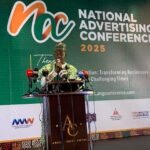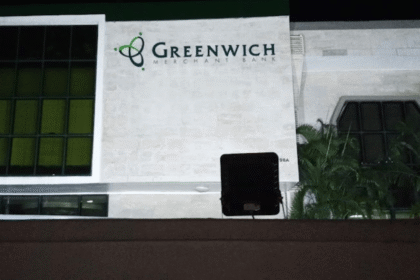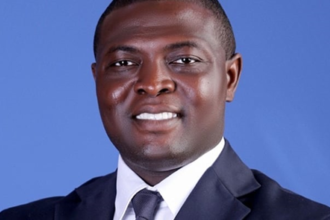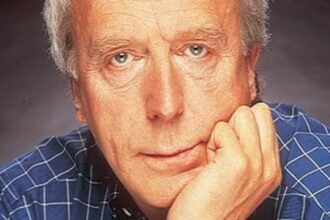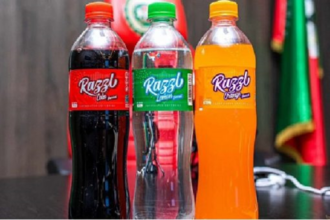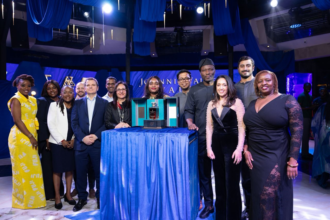By Nathaniel Udoh
On Tuesday evening in Abuja, Nigeria’s fragile image suffered another bruising blow. A video showing a heated confrontation between the Minister of the Federal Capital Territory (FCT), Nyesom Wike, and A.M. Yerima, a naval officer, went viral across digital platforms – once again casting the nation in the global spotlight for the wrong reasons.
In a world already skeptical of Nigeria’s governance culture, the incident reinforced negative stereotypes: the arrogance of power, the impunity of authority, and the collapse of institutional decorum. It came just days after former U.S. President Donald Trump’s recent derisive reference to Nigeria as a “disgraceful country of particular concern.”
Yet, in the same week, the Super Eagles of Nigeria restored a glimmer of national pride. In a thrilling encounter at Stade Mohammed V in Rabat, Morocco, the team thrashed Gabon 4–1 in the 2026 World Cup qualifiers – a result that momentarily united Nigerians across political, ethnic, and economic divides. Victor Osimhen’s brace and the team’s fighting spirit offered a flicker of redemption for a bruised national psyche.

This dual narrative – one of shame, the other of hope – once again exposes the volatile nature of Brand Nigeria: a nation of contradictions, where power and pride constantly wrestle for dominance in the public imagination.
A Nation’s Image under Siege
The Wike-Yerima altercation was not just a personal spat; it was a metaphor for the crisis of legitimacy and civility in Nigeria’s public space. At its core, it dramatized a deeper rot – the blurred boundaries between state authority and institutional discipline, between public service and personal ego.
The philosopher Jürgen Habermas reminds us that legitimacy in governance arises when state institutions command respect through rational, transparent action – not coercion or spectacle. Tuesday’s spectacle did the opposite. It turned the nation’s capital into a stage of power play, where uniformed and political authority clashed not over principle, but over prestige.
Such incidents have economic and reputational costs. In global perception indexes – from the Edelman Trust Barometer to the Brand Finance Nation Rankings – investor confidence and foreign relations are influenced by images of order, civility, and governance credibility. Every viral display of disorder or arrogance chips away at that fragile trust.
In the digital age, where perception travels faster than policy, such moments are amplified and algorithmically engraved into global memory. For a country already struggling with the labels of corruption, insecurity, and policy inconsistency, this latest altercation reinforces the idea that Nigeria is still a polity in perpetual quarrel with itself.
Football as a Counter-Narrative
Enter the Super Eagles. Their emphatic win over Gabon was more than a sporting success – it was a symbolic recovery of dignity. In 90 minutes of football and 30 minutes of extra time, Nigerians found what politics has long denied them: unity of purpose and shared pride.
As Victor Osimhen punched in his second goal, after Adams’ first, and Chidera Ejuke sealed the victory, Nigerians from Lagos to Maiduguri flooded social media with patriotic fervour. For a moment, the country felt whole again – proof that national identity can still find expression through collective achievement.
From a branding perspective, this is significant. Sport remains one of the world’s most powerful instruments of soft power. As communication theorist Joseph Nye argues, nations build influence not only through military or economic might but through attraction – the ability to inspire admiration and empathy. Nigeria’s Super Eagles, like its global music stars and creative industry icons, continue to do what politics often fails to achieve: sell hope.
The Power-Image Paradox
The Wike-Yerima confrontation and the Super Eagles’ victory are two faces of the same coin – both defining moments in the contest for Nigeria’s image. One revealed the fragility of leadership culture; the other reaffirmed the resilience of the people.
For the media, public relations professionals, and policymakers, the message is clear: Brand Nigeria cannot thrive on contradictions. A strong national brand must project consistency between political conduct and people’s aspiration. Governance must inspire, not embarrass; leadership must model the civility it preaches.
As John Dewey observed, democracy flourishes only where citizens can believe in their institutions. When the conduct of leaders diminishes that faith, no amount of slogan or sports victory can rebuild it. Yet, as we saw in Rabat, the people’s spirit remains unbroken — a reminder that despite systemic dysfunction, Nigerians still long for moments of collective joy, honesty, and excellence.]
Toward a Responsible National Rebranding
The challenge before Nigeria’s policymakers, media, and image managers is to turn moments of hope – like the Super Eagles’ triumph – into a sustainable narrative of competence and pride. But that will not happen through spin or propaganda. It will require the moral discipline of leadership, the accountability of institutions, and the sincerity of national purpose.
The Wike-Yerima episode must not be dismissed as “just another incident.” It is a branding disaster – an emblem of what investors, tourists, and even citizens see as the deeper ailment of governance culture. The Super Eagles, on the other hand, remind us of what is still possible: a Nigeria that wins, works, and unites.
The task before us is to bridge that gap – between chaos and confidence, between embarrassment and excellence – and to build a nation whose image no longer depends on the fleeting joy of football victories, but on enduring values of leadership, civility, and trust.
Nathaniel Udoh is a graduate of Media Studies with a master’s degree in Political Science. He has over 20 years of experience in media research and PR.


